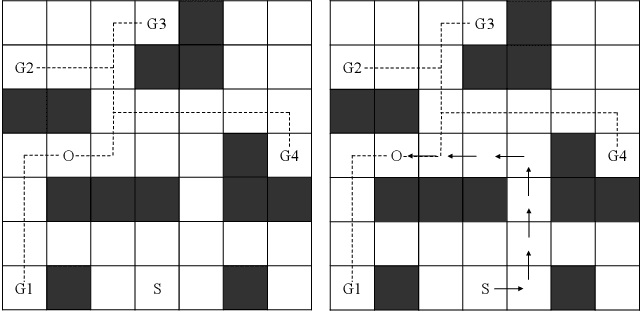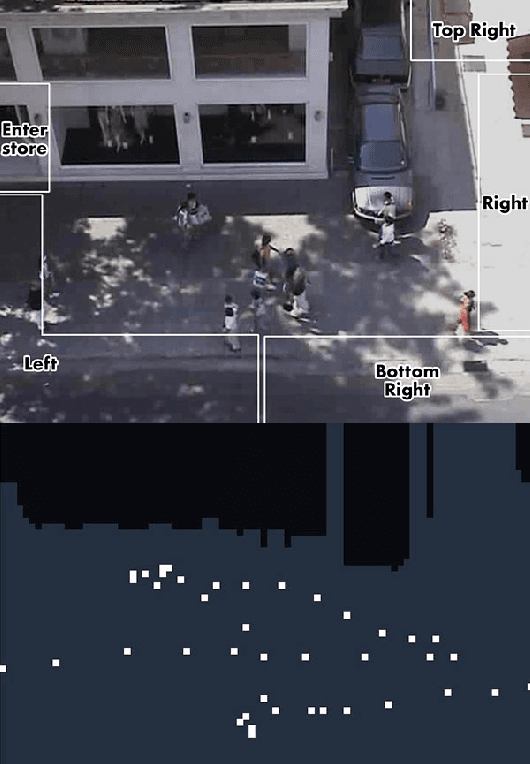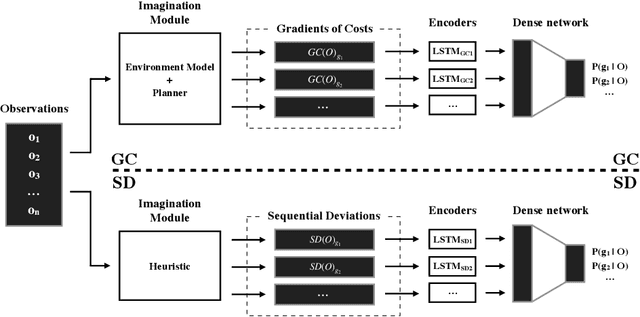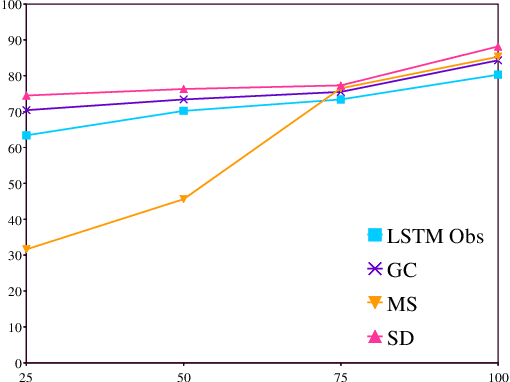Imagination-Augmented Deep Learning for Goal Recognition
Paper and Code
Mar 20, 2020



Being able to infer the goal of people we observe, interact with, or read stories about is one of the hallmarks of human intelligence. A prominent idea in current goal-recognition research is to infer the likelihood of an agent's goal from the estimations of the costs of plans to the different goals the agent might have. Different approaches implement this idea by relying only on handcrafted symbolic representations. Their application to real-world settings is, however, quite limited, mainly because extracting rules for the factors that influence goal-oriented behaviors remains a complicated task. In this paper, we introduce a novel idea of using a symbolic planner to compute plan-cost insights, which augment a deep neural network with an imagination capability, leading to improved goal recognition accuracy in real and synthetic domains compared to a symbolic recognizer or a deep-learning goal recognizer alone.
 Add to Chrome
Add to Chrome Add to Firefox
Add to Firefox Add to Edge
Add to Edge